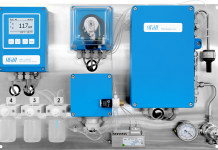
Checks carried out by inspectors in 17 European countries revealed that too many companies were failing to comply with the demands enshrined in the REACH regulations.
A pilot project run through the Forum for Exchange of Information on Enforcement checked the situation relating to 13 substances of very high concern and subject to authorisation with sunset dates in 2015.
The work showed, that although most of the European companies complied with REACH authorisation obligations, a significant number failed to do so.
The inspections checked if the substances were used or placed on the market without an authorisation and whether or not other authorisation-related duties were fulfilled.
Where an authorisation had already been granted, inspectors also checked compliance with the conditions of the granted authorisations.
The inspectors reported the results of 802 inspections, 78 % of them SMEs. The vast majority of the companies did not actually use (93%) or place on the market (92%) any of the substances that had a sunset date in 2015.
However, inspections in companies that used or placed the substances on the market showed a rate of non-compliance of 10.7 % and 8.9 % respectively.
In all cases of non-compliance, inspectors took appropriate enforcement measures, such as verbal or written advice, filing administrative orders or criminal complaints to remedy the non-compliances.
The beginning of REACH (Registration, Evaluation and Authorisation of Chemicals) can be traced back to 13th February 2001, when the European Commission adopted a White Paper setting out the strategy for a future Community Policy for Chemicals.
Having come into force in 2007, REACH aims to improve the protection of human health and the environment through the better and earlier identification of the intrinsic properties of chemical substances.
Manufacturers and importers are required to gather information on the properties of their chemical substances, which will allow their safe handling, and to register the information in a central database in the European Chemicals Agency (ECHA) in Helsinki.
The Agency is the central point in the REACH system: it manages the databases necessary to operate the system, co-ordinates the in-depth evaluation of suspicious chemicals and is building up a public database in which consumers and professionals can find hazard information.













